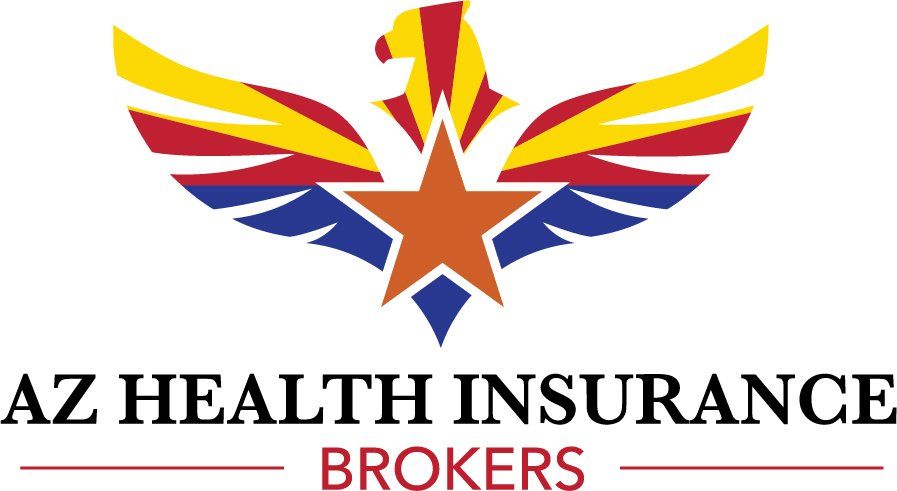Health Insurance Guide for Self-Employed, 1099 Contractors & Freelancers in AZ
If you’ve made the leap to the self-employed life, congratulations! Choosing a solopreneur career path or becoming a gig worker or freelancer has become increasingly popular in the United States, since this type of work arrangement can provide autonomy and freedom. In the U.S.:
“Forbes” reports in October 2025, there were 79.2 million Americans doing some type of independent work.
In December 2025, there were 9.05 million full-time self-employed people, according to the U.S. Bureau of Labor Statistics.
Statista reports, in general, the number of people who freelance in any capacity will climb to 90.1 million people by 2028.
Becoming self-employed can be an empowering process, one where you can see the direct results of your work efforts. You could create your own business, or choose to do the exact work you want, on your own preferred schedule.
While working for yourself can be flexible and rewarding, you’ll also need to secure your own healthcare coverage and choose an insurance plan that works for you. You may be leaving full-time employment with one company, where you had a
group health insurance plan from your employer. As someone who’s self-employed, you’ll have to research, apply for, and pay for your own insurance plan. This guide explains what to keep in mind.
Key Takeaways
- Healthcare without insurance is expensive. If you’re self-employed and want to maintain your health and the ability to work your business, make health insurance part of your business plan and financial planning.
- Without health insurance, the cost for surgery can be $7,500 or more. The cost for comprehensive cancer coverage can extend to hundreds of thousands of dollars. Health insurance offers coverage for regular checkups and preventive care, as well as other essential health services.
- If you’re self-employed and need health insurance, you can get an affordable plan through a private Arizona health insurance broker, through the federal Affordable Care Act Marketplace, through COBRA coverage or by securing a group health insurance plan, if you have other employees. The benefit of working with a local Arizona health insurance broker is that you get personalized customer service, at no extra cost.

2026 Self-Employed Health Insurance Snapshot (Arizona)
In 2026, many self-employed Arizonans are seeing higher ACA Marketplace premiums due to the expiration of enhanced tax credits and year-over-year carrier rate increases. As a result, comparing ACA plans, private PPO options, and HSA-eligible strategies is more important than ever — especially for freelancers, 1099 contractors, and business owners without employer coverage.
Who This Guide Is For
This guide is designed for:
- Self-employed business owners and sole proprietors
- 1099 contractors and freelancers
- Consultants, gig-economy workers, and creators
- Small business owners with 1–10 employees
- Arizona residents buying insurance without employer coverage
What Health Insurance Options Are Available for Arizona Freelancers in 2026?
Self-employed business owners, freelancers and contractors have different options when buying health insurance. These include COBRA health insurance, government/Affordable Care Act (ACA) health insurance plans, private health insurance and group insurance, depending on if the self-employed individual employs other workers.
You may be wondering about your insurance options if you’re an entrepreneur, single-member LLC owner, small business owner, independent contractor, gig economy worker, consultant, freelancer, online content creator and/or influencer. As you manage your own personal health insurance plan for yourself and/or your family, it’s helpful to consult with a self-employed health insurance broker, who can show you all your self-employed health insurance options, like the following. Work with a broker in Arizona for local customer service that’s more readily available than a national call center.
1. What Is COBRA Health Insurance?
COBRA stands for the Consolidated Omnibus Budget Reconciliation Act. It provides coverage for former employees and, if applicable, their families, for up to 18 months when a worker loses their job. If you worked for a company with at least 20 or more employees, you’re likely eligible for COBRA, since “continuation coverage” is mandated for large employers that offer health insurance through work.
COBRA may also apply in various life-changing scenarios, such as:
- Decrease in hours worked
- Voluntary job loss
- Transition between jobs
- Death
- Divorce
Self-employment alone doesn’t qualify someone for COBRA. However, if you choose to pursue self-employment because you’ve lost your job with your old full-time employer, or you go through an event like those above, you can get COBRA as you begin your self-employed journey.
Keep in mind that COBRA health coverage can be expensive. You may have to pay up to 102% of the plan’s cost, including fees for administration. That’s why, even when you’re eligible for your old work insurance plan, you may have to pay for the entire cost under COBRA. In the past, your employer may have covered a portion of the coverage.
Considerations for COBRA health insurance: COBRA might be a good option for you if you prefer to keep your old health insurance coverage as you consider your next plan. Also, if you take expensive prescriptions, or you’ve already met your deductible for the year, it may make financial sense to continue your healthcare coverage under COBRA.
2. What Are Government / Affordable Care Act (ACA) Health Insurance Plans?
The Affordable Care Act (ACA) provides government-sponsored healthcare coverage through the U.S. federal government. Anyone can enroll in an ACA plan or change their existing ACA plan during the program’s annual Open Enrollment Period, which is typically from November 1 through January 15 each year.
There are also special circumstances that could qualify for an ACA plan. These include:
- Medicaid eligibility: Medicaid is a federal government insurance program that provides low-cost or free health insurance coverage to low-income individuals and households, as well as to older adults, those with disabilities and pregnant women.
- A qualifying event that triggers a special enrollment period due to a specific circumstance: Special enrollment periods may open up due to life events like marriage, child adoption, having a baby, or moving.
You will typically also be eligible for an ACA plan if you qualify for COBRA. Otherwise, you may also be eligible for an ACA plan during open enrollment or if you qualify for a special event. You could get a cost-sharing subsidy or premium tax credit health insurance subsidy, depending on your household’s financial situation.
One important consideration to note for ACA plans in 2026 is that enhanced tax credits that existed in 2025 to lower the cost of health insurance have expired in 2026. There’s also a 26% average increase in what health insurers are charging for coverage on the ACA Marketplace in 2026, according to the KFF. With these factors combined, enrollees who were subsidized in 2025 could see their net monthly premiums more than double compared to 2025, depending on income, household size, and carrier.
Some states also have state-sponsored health insurance plans. Arizona has a State Plan for Medicaid and a State Plan for the Children’s Health Insurance Program (KidsCare), which are partnerships between the Arizona Health Care Cost Containment System and the Centers for Medicare and Medicaid Services.
Considerations for ACA plans: There’s a lot of diversity in the quality, provider options and costs of ACA plans on the federal marketplace. You might be interested in an ACA plan if you qualify for subsidies to save money. Also, consider that ACA plans can be more restrictive in provider choice, as many are health maintenance organizations (HMOs).
ACA plans can also be a good option for those with pre-existing conditions, because you’ll still be eligible for coverage even if you have one or more pre-existing conditions. If you need help finding the best options on the ACA marketplace, you can contact us for free expert ACA guidance through the process. We will learn all about your budget and your unique healthcare needs, and we’ll present you with all your options so you can compare them before you choose.
In Arizona, the following healthcare providers currently offer plans on the ACA Marketplace.
Even if you’re outside of Open Enrollment, you can still fill out our free form for information and other health insurance options available.
3. What Are Private Health Insurance Plans?
Private health insurance plans are offered all times of the year through private insurance specialists, like AZ Health Insurance Brokers. Insurance brokers work directly with health insurance providers and can provide information on available plans that fit your unique healthcare needs and your budget. This offers a unique advantage in local customer service options.
There’s also a lot of diversity in private plan coverage and costs. For those with pre-existing conditions, private insurance may be more expensive compared to an ACA plan. But if you don’t see doctors that frequently, you could save money compared to a COBRA or ACA plan and get healthcare coverage that provides preventive care and emergency coverage.
Considerations for private plans: A private health insurance plan may make the most financial sense, especially if you don’t qualify for ACA marketplace subsidies or COBRA coverage.
Another private plan advantage is that you gain access to a personalized health insurance broker who is always there to help you navigate your health insurance. Compared to having to deal with an insurance company, you can get excellent local customer service to support you on your self-employed journey. To get a free private health insurance plan quote within minutes, contact us here.
4. What Are Group Health Insurance Plans?
If you’re self-employed and have at least one other worker, offering group health insurance could be a possibility. Providing your employees with health insurance coverage can be a good recruiting and retention benefit. Consider:
The Society for Human Resource Management reports in 2025, 88% of workers ranked healthcare coverage as extremely or very important when considering job decisions.
According to Gallup, “well-being” is in the top two factors job seekers consider when looking for a new job, which healthcare benefits can support.
In October 2024, “Forbes” reports 67% of employees (more than two-thirds) cited employer-covered healthcare as the top benefit a job can offer. More than 80% of employees who are older than age 42 are seeking jobs that include employer-covered healthcare.
How do group health insurance or business plan options work? You’re in charge of what kind of plan you want to offer. You can manage details like amounts for deductibles and copays, as well as determine what type of healthcare is covered in the plan. Most employers that offer business health insurance pay for part of the plan’s monthly or annual premium costs. Employees are typically responsible for paying part of the premium, as well.
Considerations for group plans: If you have at least one other worker, and you plan to grow your self-employed business, you might gain an advantage when you provide group health insurance. As workers become more selective with employer benefits, offering a group health insurance plan could help you attract and keep talented workers.
5. What Are Health Savings Accounts (HSAs)?
A health savings account (HSA) can help self-employed individuals save money for healthcare costs when they’re
paired with a high deductible health plan (HDHP). HDHP plans have lower monthly premiums, and the insured can add money to an HSA account and use those contributions tax-free for medical expenses.
With higher monthly premiums, on average, in 2026, self-employed individuals may want to get an HDHP and use an HSA to help pay for medical costs, such as copays and prescription drugs. HSA plans are “triple-tax-advantaged,” as they allow for pre-tax contributions, tax-free investment growth and tax-free withdrawals for covered medical costs. This means, they can offer tax advantages for 1099 contractors in 2026.
Self-employed business owners that offer HDHP plans can also offer an HSA for employees.
Considerations for HSA accounts: If you visit the doctor regularly or have an expensive prescription you regularly take, it may make more sense to have a healthcare plan with a lower deductible, which would exclude you from being eligible for an HSA.
Another consideration for an HSA account is that healthcare needs can be unpredictable. If you want a clearer healthcare budget, it might make more sense to get a different healthcare plan, rather than an HDHP paired with an HSA.
How Can You Compare Self-Employed Health Insurance?
When you’re considering self-employed health insurance, compare options like COBRA health insurance, ACA health insurance, private health insurance, group health insurance and HSA plans.
Use the following table for a self-employed health insurance comparison at a glance.
| Health insurance plan | What is it? | When can you get it? | Pros | Considerations |
|---|---|---|---|---|
| COBRA health insurance | Health insurance coverage for former employees and, if applicable, their families | Immediately after job loss; lasts up to 18 months when a worker loses their job; lasts 3 years once a divorce is finalized. | Get health insurance coverage while you figure out long-term coverage Can be a good option if your old healthcare coverage meets your needs in the short-term May make financial sense if you take expensive prescriptions and/or you’ve already met your deductible for the year | Costs can be very expensive (up to 102% of the plan’s costs), since your former employer is no longer paying for part or all of your health insurance Coverage ends after 18 months, so you’ll want to consider other options for long-term coverage |
| ACA health insurance | Government-sponsored healthcare coverage through the U.S. federal government | Open enrollment is between November 1 through January 15 each year; special qualifying events may enable enrollment at any time of year, including marriage, having a baby, child adoption or moving | Available for those with pre-existing conditions Potential for a cost-sharing subsidy or premium tax credit health insurance subsidy, depending on your household’s financial situation | May be more restrictive in provider choice, as many are health maintenance organizations (HMOs) |
| Private health insurance | Health insurance plans offered through private insurance brokers | Any time | Work with a personalized broker, and get more attentive local customer service when you need it Find a cost-effective plan that meets your unique healthcare needs and budget Could offer cost savings for relatively healthy individuals and families who don’t see doctors too frequently and/or have expensive medications That’s how you can get a PPO in Arizona. | Can potentially be more expensive for those with pre-existing conditions, compared to plans like ACA plans |
| Group health insurance | Health insurance coverage for self-employed individuals with at least one other worker | Any time | Can be used as a recruiting and retention strategy for business owners Offers customization for deductible and copay amounts, as well as what type of healthcare coverage there is | Employers are typically responsible for paying part of the health insurance premium for employee plans Premiums tend to be more expensive than individual plans. |
| HSA health plan | Savings account for healthcare costs, to be paired with a high deductible health plan (HDHP) | Any time | Offers “triple” tax advantages: contributions are tax-free, investment growth is tax-free, and eligible withdrawals are tax-free Since HSA plans are paired with HDHP plans, this can lower overall healthcare costs for relatively healthy self-employed individuals and their families | Because healthcare expenses can be unpredictable, costs can unexpectedly rise, depending on healthcare needs |
What Family Health Insurance Options Are Available for Self-Employed Individuals?
If you’re making the leap to self-employed but still need health insurance coverage for your spouse and/or children, you have options. These also include COBRA health insurance, government/ Affordable Care Act (ACA) health insurance plans, private health insurance, HSA plans and group insurance, depending on if the self-employed individual employs other workers.
Getting health insurance for your spouse and/or family works similarly to how it would when you’re getting it for just yourself as a self-employed worker.
- Choose which type of insurance you want. Decide if you want a COBRA, ACA Marketplace, private, HSA or group health insurance plan. If your household income is below a certain amount, you may qualify for subsidies through the federal government for healthcare.
- Research providers. Compare health insurance providers, expenses, physician and prescription coverage, and other factors. Select the health insurance provider you want to use.
- Sign up for family coverage. When you sign up for self-employed health insurance coverage, instead of selecting individual coverage, select a plan that covers your spouse and/or your dependents. Generally, the total amount for a family insurance plan will be more expensive than an individual plan, because you’re covering additional people. On the other hand, the individual cost of insurance on a family plan may be lower per individual, compared to a single individual securing health insurance.
If your spouse still has health insurance coverage through work, you’ll want to compare coverage options and prices to see if it makes sense to get insured under their plan, or bring your family under a self-employed health insurance plan. Talk with an insurance broker who can help you compare your options.
What Questions Should You Ask When Considering Self-Employed Insurance?
Getting insurance on your own can be a big responsibility. For whatever category of self-employed health insurance you’re getting, from private to ACA Marketplace, think about factors like budget, preferred providers, prescriptions and travel frequency.
For example:
- How much you can budget each month for a premium: Generally, the higher premium you’re able to pay each month, the better health insurance coverage you’ll get when you actually need care, such as emergency coverage. If you’re relatively healthy and are willing to risk to pay more out-of-pocket when you do need coverage, a lower monthly premium plan could work for you.
- Who your preferred providers are: If you have doctors you want to continue seeing, you should research insurance plans that include coverage for those healthcare providers.
- If you take any prescriptions: The same goes for prescriptions – if you need prescription medication coverage, you’ll want to make sure the plan you get covers your prescriptions. If not, you may have options such as cheaper mail-order prescriptions or discounts through a service like GoodRx.
- How often you travel: If your self-employed career has you on the move, you’ll also want to consider plans that are more likely to cover services for when you’re out of state. Some plans offer preferred provider coverage nationwide, while others give you access to walk-in health clinics around the country.
The best way to walk through these questions for self-employed health insurance is to talk with an insurance broker. It doesn’t cost anything to consult with one of the AZ Health Insurance Brokers team members. We’re here to help you learn about your options, so you can make an informed decision you’re confident in.
How Can You Choose the Best Self-Employed Health Insurance?
Depending on which category you fall into, there may be a better type of health insurance coverage to consider compared to another. Evaluate your life situation to find the most cost-effective coverage that fits your needs.
| Life situation | COBRA | ACA | Private health insurance | Group health insurance | HSA plan |
|---|---|---|---|---|---|
| ✔️ You have pre-existing conditions and/or expensive medication. | ✔️COBRA helps you retain the coverage your old employer offered for up to 18 months. | ✔️Anyone can get ACA coverage, no matter the pre-existing condition or prescription need. | |||
| ✔️You’re relatively healthy. You don’t see doctors often or take expensive prescriptions. | ✔️Private health insurance can be the most cost-effective option. | ✔️You may be able to save by pairing an HDHP plan with an HSA plan. | |||
| ✔️You meet federal income levels that qualify you for government subsidies. | ✔️ACA plans can help you save money with cost-sharing and/or premium tax credit health insurance subsidies. | ||||
| ✔️You’re a business owner with other employees. | ✔️Group health insurance can provide a recruitment and retention advantage. | ||||
| ✔️You want to compare all your health insurance options to get the lowest-cost plan that provides the coverage you need. | ✔️Private health insurance provides you with local personalized guidance and options to compare. |
Do you need health insurance because you recently lost your job?
| Yes🡪 | COBRA – Get the same health insurance coverage you had at your employer for up to 18 months. Be aware you may be fully responsible for the costs of the insurance. |
| No🡪 | Are you a business owner with at least one other employee? |
| Yes🡪 | Consider offering group health insurance as a recruitment and retention strategy. |
| No🡪 | Are you relatively healthy, with no pre-existing conditions or expensive medications? |
| Yes🡪 | Do you want personalized local service to compare your health insurance options? |
| Yes🡪 | A local private health insurance broker can present you with all health insurance options that may fit your needs. |
| No🡪 | Look into a health savings account (HSA), which you can pair with a high deductible health plan (HDHP), to lower overall insurance costs. |
| No🡪 | Are you applying for health insurance between November 1 through January 15, and/or do you qualify for a special enrollment period, due to a life change such as marriage, moving, divorce or having a baby? |
| Yes🡪 | Affordable Care Act health insurance plans are available to anyone, regardless of pre-existing conditions or medication requirements. |
| No🡪 | You can apply for private health insurance any time of year. |
Need Help Getting Self-Employed Insurance?
Self-employed individuals have many diverse ways to secure valuable health insurance coverage. When you work for yourself, healthcare setbacks can also impact your business. That makes healthcare coverage an essential part of successful business operations for self-employed individuals.
Consult with an Arizona health insurance broker to evaluate your options. We’ll talk with you confidentially about your health history and needs, your budget and what you want out of your healthcare coverage. We can then recommend the top health insurance options for self-employed workers, so you can select a plan that works for your (and your family’s, if needed) requirements.
Call us at 602.617.4107,
contact us online, or email
quotes@azhealthinsurancebrokers.com for more information.
Self-Employed Health Insurance FAQs
What are the main health insurance options for self-employed individuals?
Self-employed workers can get private health insurance or federal marketplace coverage, also known as the Affordable Care Act (ACA) or Obamacare health insurance coverage. Self-employed workers who are leaving a previous job may qualify for COBRA health insurance coverage. Self-employed workers who employ other employees could also offer group health insurance plans to their employees. There are also health savings account (HSA) plans available to self-employed workers with high deductible health plans (HDHPs).
Can self-employed health insurance premiums be deducted as a business expense?
Yes. If you’re self-employed, there’s a possibility you’ll be able to deduct health insurance premiums for yourself, your dependents and your spouse as a business expense on the federal income tax return.
How does being self-employed impact eligibility for premium subsidies/tax credits?
Being self-employed can impact eligibility for premium subsidies or tax credits, particularly when purchasing an ACA health insurance plan through the federal health insurance marketplace, also known as the exchange. Talk with an Arizona health insurance broker to see what you might qualify for.
Can self-employed individuals contribute to a health savings account (HSA)?
Yes, self-employed workers can contribute to an HSA, as long as they have a high-deductible health plan (HDHP).
Are there any additional tax-advantaged savings healthcare programs for self-employed worker medical expenses?
Yes. For self-employed workers, a health reimbursement arrangement (HRA) 105 or HSA are popular options. In some instances, an individual coverage health reimbursement arrangement (ICHRA) may also be used.
How do self-employed people afford health insurance?
Self-employed people are responsible for securing their own health insurance. This means, health insurance coverage should be a part of business plan budgeting. Typically, freelancers and independent contractors charge clients a higher hourly rate or fee than what full-time workers would make, to account for expenses such as health insurance, retirement planning and paid time off. You can visit the Small Business Administration for assistance with writing a business plan and financial planning as a self-employed individual.
How much is health insurance a month for a single person?
Health insurance costs will vary widely depending on factors such as: what kind of coverage you get, if you’re adding a spouse or dependents to a plan, how much you want to pay in monthly premiums versus how much you’re willing to pay in deductible costs, whether or not you qualify for government subsidies for a federal marketplace plan and whether you add on supplements, such as accident insurance. You may be able to pay little to nothing for health insurance if you qualify for government subsidies. If you get basic coverage for medical emergencies and annual checkups, you could expect to pay a few hundred dollars a month for coverage, or around $10 to $15 a day or more, depending on the coverage you select.
What are medical costs if you don’t have health insurance?
There are great financial risks to not having health insurance coverage. In 2024, KFF reports 49% of uninsured adults have difficulty affording healthcare costs, while 62% of uninsured adults report having healthcare debt. If you don’t have health insurance, a visit to urgent care typically costs up to $300, healing a broken leg can cost at least $7,500, and a 3-day hospital stay will cost at least $30,000. Treatment for something like cancer can cost hundreds of thousands of dollars.
Is there a penalty for not having health insurance?
No, there is no financial penalty for not having your own health insurance.
Can you be denied medical treatment if you don’t have insurance?
If you don’t have health insurance, you still have the right to receive emergency medical care, though you will be charged for those expenses. You will also be charged if you receive non-emergency care treatment, such as visiting urgent care, going to the emergency room for non-life-threatening care, and seeing a doctor for routine care or issues like the flu.
When is open enrollment for self-employed health insurance?
If you want ACA Marketplace insurance, open enrollment is generally from November 1 through January 15. However, you can get a private health insurance plan at any time during the year. You may also qualify for COBRA or a special enrollment period for the ACA Marketplace if you experience a certain life event.
How can you get self-employed health insurance for your entire family?
Securing self-employed health insurance for your entire family is similar to getting it as an individual. You’ll just want to select a self-employed health insurance plan that also includes coverage for your spouse and/or dependents. Look for a family plan when you’re considering self-employed health insurance options.
Should I use COBRA health insurance?
COBRA health insurance can ensure you retain healthcare coverage, even if you lose your job. If you like your past work health insurance plan, and/or you’ve reached your deductible, you may want to continue COBRA coverage while you decide on your next plan. Keep in mind, COBRA healthcare coverage can require full payment of the plan, plus administration fees, which can make it more expensive than a private plan. Talk with a health insurance broker to see what makes the most sense for you.
Do you have to offer health insurance to employees?
According to the U.S. Department of Health and Human Services, small businesses with fewer than 50 full-time employees aren’t required to provide health insurance coverage. If you’re self-employed and want to attract and retain top talent, healthcare coverage can be an attractive benefit for job seekers and workers. It may be worth offering a group health insurance plan that helps your employees maintain a healthy work-life balance.
What is private insurance for self-employed workers?
Self-employed workers who need health insurance can work with an insurance broker, who will find the best plans for the self-employed person’s budget. Insurance brokers work directly with insurance companies, so you can save time in research and comparing plans by contacting an insurance broker for self-employed insurance.
What’s the Best Health Insurance for Self-Employed People in Arizona?
There is no single “best” plan. ACA Marketplace plans work well for those who qualify for subsidies or have pre-existing conditions. Private plans can be cost-effective for healthier individuals who don’t qualify for subsidies. HSA-eligible plans may help reduce long-term costs for those comfortable with higher deductibles.











